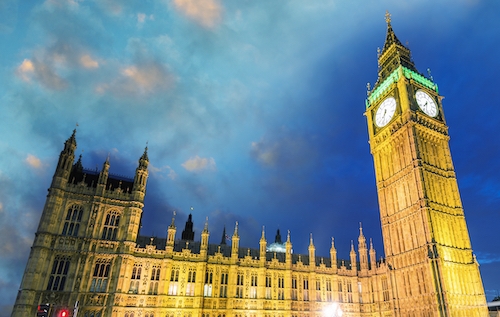MPs want auto-enrolment pensions to be revamped to prevent them providing second rate incomes in retirement.
The current auto-enrolment system is failing to lead to adequate living standards in retirement and too many people are missing out on auto-enrolment, say MPs.
MPs on the influential Work and Pensions Select Committee (WPC) have made their views clear in the ‘Protecting Pension Savers’ report published today which reviews progress on auto-enrolment.
The Committee has called on the Government to set out its plans for auto-enrolment reforms.
Nearly 11m people are members of auto-enrolment pension schemes 10 years after they were launched but many others are missing out on joining them, including the self employed, 'gig economy' workers, younger workers and part-time workers. There are also concerns that not enough money is being saved by auto-enrolment members to provide adequate incomes in retirement.
In the report, MPs also said they wanted a review of the advice / guidance boundary by March. The FCA said this week it was considering reviewing the boundary to allow lower cost financial 'guidance' to be offered to consumers.
MPs said it was disappointing that five years on from the 2017 auto-enrolment review that there has been no implementation plan or impact assessment for the measures suggested then despite them having near ‘universal support’.
The Committee said that former Pensions Minister Guy Opperman MP had told them he had a two or three clause bill ready to make the necessary changes to legislation and that the Government should introduce this legislation no later than the beginning of the next session of Parliament, along with a timetable for consultation and implementation.
One of the changes suggested by the 2017 review was an increase in minimum contribution rates.
Committee members said that while they supported the aspiration to work towards a 12% minimum contribution rate - starting with an increase in employer contributions to 5% - any increase should be at the right time, rather than in the middle of a cost-of-living crisis. The current auto-enrolment contribution rate for 2020/21 is 8% including 3% from employers.
MPs called on the Government to say whether it expects it to be possible to increase minimum contributions in the foreseeable future. If not, the Government should address the challenge of inadequate pension savings, MPs said.
The Committee called on the Government to move forward its plan to increase pension saving for the self-employed. MPs recommended that the Treasury and Department for Work and Pensions work together to set a date to trial ways to nudge more self-employed people into pension saving.
The Committee also called for the Government to bring forward its Employment Bill to increase legal protection to 'gig economy' workers and encourage their entry into auto-enrolment schemes.
The group of MPs also shared concerns around the gender pension gap, and that little progress is being made to reduce it. The report recommended that the DWP work with the Government to agree a definition of the gender pension gap and a target to reduce it. It also recommended the Government look at ways to make existing policies work better for lower-paid and part-time workers, including a review of the £10,000 earnings trigger to enter auto-enrolment.
The report called on the Government to ensure more people have access to financial advice or guidance in order to give them the support they need in making decisions for retirement.
Stephen Lowe, group communications director at Just Group, said he was glad to see the Work and Pensions Committee continuing to push the Government towards boosting the numbers accessing guidance services.
He said: “Our worry is the government will lose enthusiasm for meaningfully boosting the numbers accessing free, independent and impartial guidance which – let’s remember – is the key consumer protection measured introduced with the pension ‘freedom and choice’ policy. Unfortunately, it’s all too easy to see the government quietly letting this issue slide – that’s not remotely acceptable."
Nigel Peaple, director of policy and advocacy, at the Pensions and Lifetime Savings Association, said: “We agree with the Committee’s stark assessment that without Government action too many people will fail to achieve an acceptable standard of living in retirement.
“The PLSA strongly believes that reform is needed, but it should be only gradually introduced from the mid-2020s and over the decade that follows.”

